- 5 Tips To Finding Peace Within Yourself
- The Do’s and Don’ts of Learning How to Accept Yourself
- How to Find Your Inner Peace and Transform Your Life
- 8 Benefits of Having an Open Mind and How to Get One
- Learn How To Be A Happier Person
- What Is The Meaning Of Life?
- Laws of Abundance – The Riches of Love and Joy
- How to Be Laid Back By Following These 9 Simple Strategies
- The meaning of confucius’ golden rule – 4 practical ways of living it
- 3 methods of unleashing the power of contentment in your life
What are the Symptoms of Panic Disorder and How can Meditation Help?

Panic disorder affects between 2 to 4 million Americans, can appear at any age, and can be a significant health concern. With this condition, you have feelings of sheer terror, feelings that can occur suddenly and repeatedly without notice. Because of the lack of warning, many who suffer with panic disorder have substantial anxiety between episodes, constantly anticipating the next panic attack. A panic attack is the sudden, powerful fear that leads to dizziness, heart palpitations, and shortness of breath. Most people with this mental health concern have panic attacks, and these events can be so scary and bad that they interfere with activities of normal life. If you suspect you have panic disorder with panic attacks, seek medical attention as quickly as possible.
Who gets panic disorder?
Panic disorder usually begins during the late adolescent life period or during early adulthood. It is twice as common among women as in men. Other health concerns accompany this condition, such as alcoholism, depression, phobias, or bipolar disorder.
What causes panic disorder?
While the exact cause of panic disorder is not fully understood, research has shown that a combination of factors could possibly be involved. What experts do know is the body has a natural response to danger or stress. It is the “fight-or-flight response”. This reaction allows you to be ready to cope with or run away from danger. During this response, your body releases adrenalin, the chemical that speeds up your heart and gives you a burst of energy. For people with panic disorder and anxiety attacks, the brain releases this chemical for minor reasons or no clear cause, bringing on an attack of panic.
The factors associated with panic disorder with panic attacks include:
Family History – This condition clearly runs in families. Researchers believe that it is genetically passed on to some people from one parent of both just like eye color.
Substance Abuse – The abuse of alcohol and drugs contributes to panic disorder. Using too much caffeine or nicotine can cause panic attacks.
Brain Abnormalities – Dysfunction of certain areas of the brain brings may lead to panic disorder with anxiety attacks.
Major Life Stress – Major life transitions along with stressful events leads to panic disorder. These include the loss of a job, death of a loved one, major medical illness, or divorce.
Certain Medications – Doctors have found that taking specific medicines cause side effects that lead to panic disorder or panic attacks.
What are the symptoms of panic disorder and panic attack?
Panic disorder leads to attacks of panic. During these episodes, you feel a sense of unreality, as well as a sense of loss of control or impending doom. Attacks can occur at any time, even during sleep. Most panic attacks average a couple of minutes, but occasionally they go on for up to 15 minutes. Here is a list of symptoms of panic disorder and panic attack.
Panic Disorder Symptoms
To diagnose panic disorder, doctors rely on diagnostic criteria. A person with panic disorder encounters recurrent unpredicted panic attacks, and has at least one of the attacks followed by more than one month of one or more of the following:
- Behavior Changes – significant change in behavior related to the anxiety attacks
- Worry Regarding Attacks – persistent concern regarding having more attacks.
- Worry Regarding Implications of the Attack – recurrent worry regarding the attack or its significances (e.g. having a heart attack, going crazy, losing control)
Panic Attack Symptoms
- Feelings of intense fear, anxiety, or terror
- Difficulty breathing
- Sweating
- Pounding heart
- Chest pain
- Dizziness
- Trembling or shaking
- Serious feeling of dread
- Shortness of breath
- Choking feelings
- Chills or hot flashes
- Tingling or numbness of toes and fingers
- Nausea or stomach discomfort
- A fear that you are losing control or are about to die
4 Ways Meditation helps Relieve Panic Disorder Symptoms
1. Meditation Boosts Endorphins – Endorphins are neurotransmitters used by the body as an internal painkiller. These substances give you a sense of happiness and security. Experts believe endorphins reduce blood pressure and heart rate.
2. Meditation Boosts GABA – GABA (Gamma-Amino Butyric Acid) is an amino acid best known for relieving anxiety, insomnia, tension, and epilepsy. It works by inhibiting nerve transmission in the brain, calming nervous activity. Researchers found that people with addictions to food, tobacco, drugs, alcohol, gambling, and shopping all have one thing in common: not enough GABA.
3. Meditation Boosts DHEA – Dehydroepiandosterone (DHEA) is also known as androstenolone. This hormone, produced by the adrenal glands, the gonads, and the brain, is a metabolic intermediate in the biosynthesis of androgen, estrogen, and progesterone. This hormone gives you energy and feelings of empowerment. Furthermore, DHEA enhances memory, alleviates stress and anxiety, and improves a person’s psychological well-being.]
4. Meditation Boosts Melatonin – The powerful antioxidant melatonin is a stress reliever. People who meditate maintain adequate levels of melatonin to restore balance and decrease tension and anxiety.


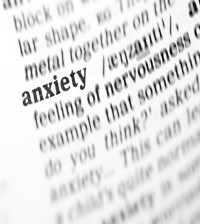
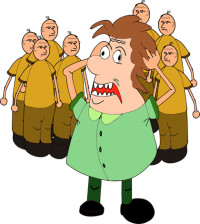



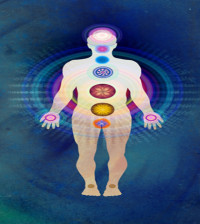

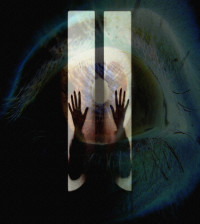

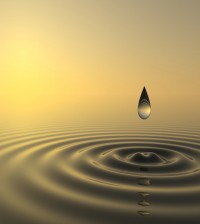
























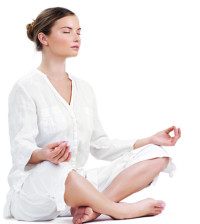







You must be logged in to post a comment Login